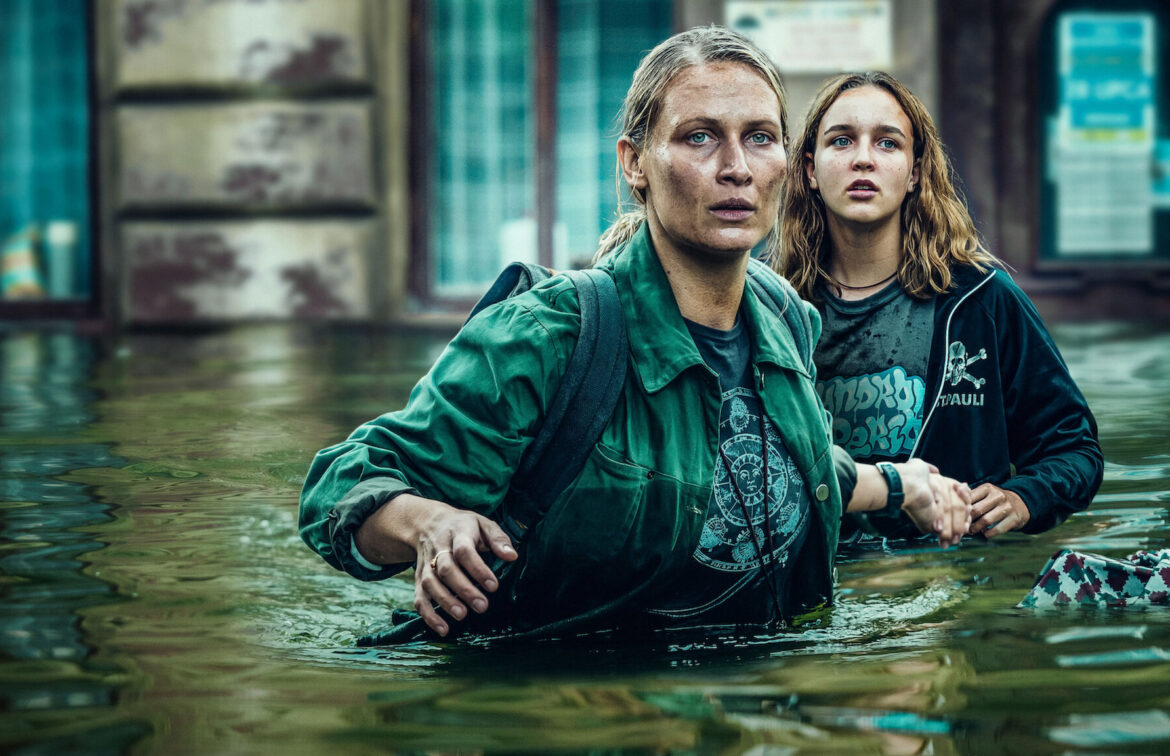In classic Godzilla films, the titular monster looms large on screen, but it’s often the scientists and bureaucrats who pull focus as they debate what to do and when about the impending approach of Godzilla. Whether it’s the inaction of the government, the skepticism of “experts”, or the red tape, what usually happens though is that, after a period of indecisiveness, Godzilla attacks, Tokyo is in part destroyed, and only after its too late does a plan get put into action and for one reason or another Godzilla leaves. High Water is the dramatization of what happened in Poland, and specifically Wrocław, just before and during the real life 1997 Central European flood. Like the scientists and bureaucrats in the Godzilla franchise, they also see a potential impending threat as a flood appears imminent; however, they also are struggling with how to and if to act, and in High Water we are given seats front and center to the disaster that awaits.
We are first introduced to Jaśmina Tremer (Agnieszka Żulewska), an expert hydrologist who lives out in the countryside, who is quite happily living in relative isolation with her boyfriend while studying and working in nature. She is shown quite early on to be a recovering addict; however, she appears to be at peace. That all changes when a helicopter is sent for her by Jakub Marczak (Tomasz Schuchardt), a local politician with whom Tremer has a past, and she’s brought to Wroctaw as an expert to assess the threat of flooding. Tremer’s dismissed early on by many of the men in the room, and despite her attempts to leave after being dismissed, her past, and her sense of duty, keeps her in the city fighting to prevent catastrophe as the disaster nears.

High Water covers a period of time which many Americans might be unfamiliar with, so right off this is an insightful look at a disaster that swept much of Europe, and in particular Poland, the Czech Republic, and Germany. Likewise it’s also an intriguing look at how government personnel, and those in power, weigh risks as they try, and often may fail, to prevent disaster. What’s the safer surer bet? Destroy floodbanks and safe a city but risk destroying a rural community?
In addition to these perhaps unanswerable debates, this real life disaster is imprinted with the fictional Tremer’s own past coming back to her, one which she abandoned years before. While insert characters and their dramatizations can often feel incredibly unnecessary, though expected, Tremer’s story, and the story of those around her actually adds weight to the reality taking place around them. Marczak’s character in particular, whose story often intertwines with Tremer, excellently grounds the series, as you can see not just his struggles as a politician, unsure of his actions, but also as a father who is trying to get his family through the chaos.
High Water does an excellent job portraying the real life disaster that befell many countries in Europe in 1997, while also asking the tough questions, not just of its characters, but the audience. Even in hindsight, where its clear inaction certainly did not help, we are left with murky answers as to what would have been the best course of action? That tension, and the excellent treatment of this real life disaster, is why High Water stands out as a truly excellent dramatization, and one that perhaps any future leader should consider watching. Lest they one day be at the precipice of disaster and have to consider what next.









